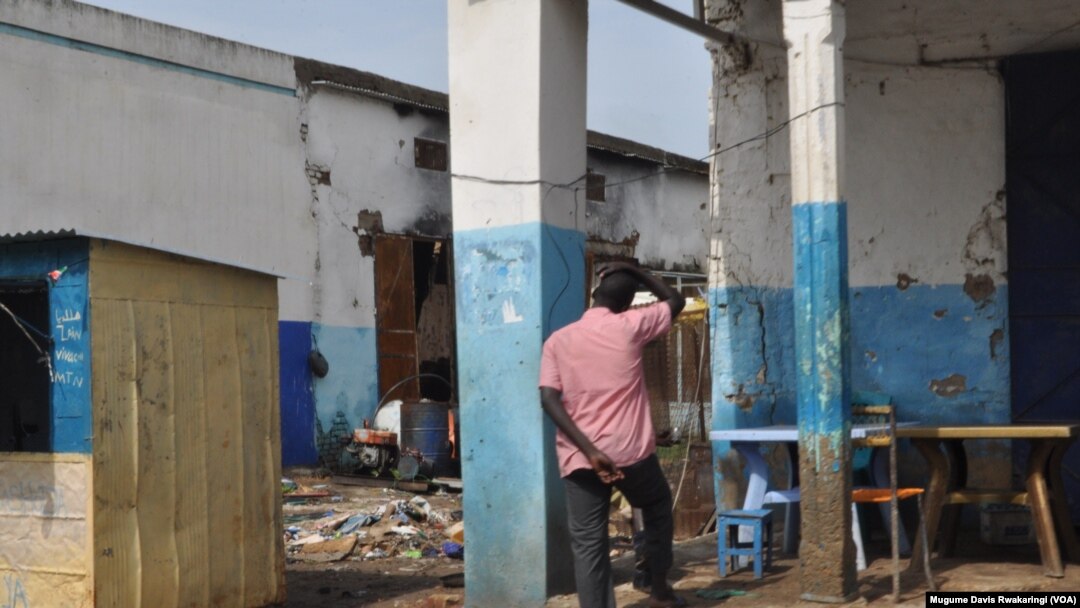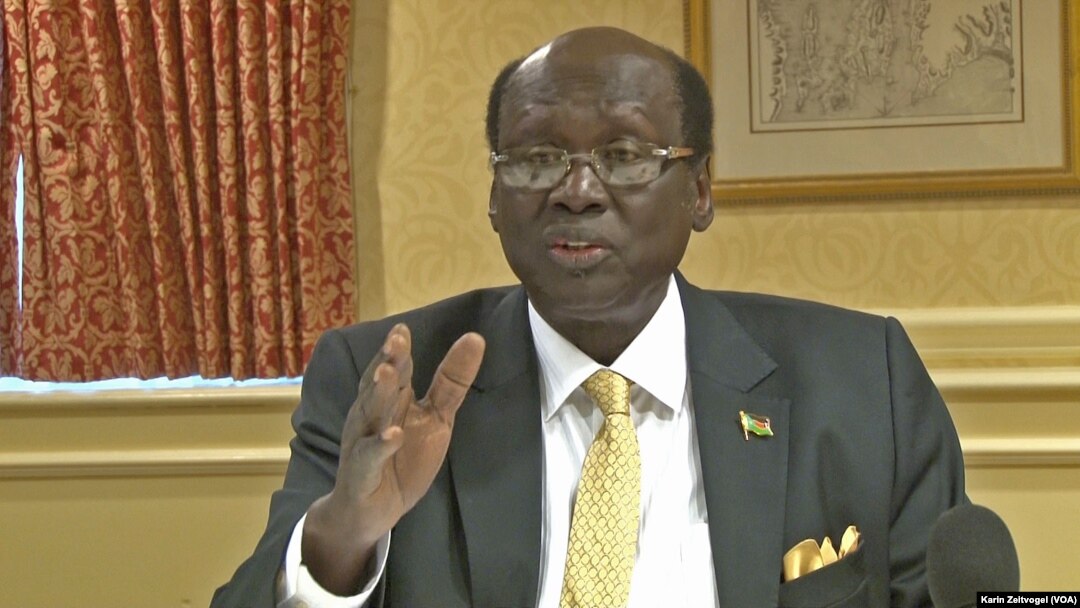South Sudan Foreign Minister Barnaba Marial Benjamin said Tuesday that oil production, the backbone of the country's economy, has not been affected by the year-old conflict in the young nation.
"There is no fighting in the oil areas. The oil has been flowing since December 2013," Marial told South Sudan in Focus in a telephone interview from Khartoum.
"It's only the Unity fields where the workers were withdrawn because there was a threat of more destruction there, but the oil has been flowing. It has never stopped for one day," he said.
International media and energy monitors disagree with Marial. The U.S. Energy Information Administration (EIA) says on its website that oil production in South Sudan has been "partially halted" since the country plunged into violence in December last year. The U.S. agency said production has fallen from around 250,000 barrels per day in 2012 to 160,000 today.
Eight months into the fighting, U.S. energy giant Exxon Mobil pulled out of a deal with France's Total to explore for oil in Jonglei state, one of three states where fighting has been the most intense.
And the Satellite Sentinel Project, which monitors the Sudans using satellite imagery, has said it has visual evidence of destruction in oil-producing states in South Sudan.
Fighting concentrated in oil states
South Sudan took with it the lion's share of oil-producing territory when it gained independence from Sudan in 2011.
To compensate Khartoum for lost oil revenues, South Sudan is paying more than $3 billion in fees to Sudan over several years. It also pays a fee per barrel of oil transported through Sudanese pipelines to seaports for export.

A man looks at what remains of a house in Malakal, South Sudan.
Much of the fighting in South Sudan since last December has been concentrated in the two oil producing states, Unity and Upper Nile, and in Jonglei state, which is also thought to have oil reserves. Foreign oil companies pulled their workers out of Unity and Upper Nile states when the fighting began and, although the workers are reported to be returning, oil production has fallen by nearly 30 percent, from around 250,000 barrels a day to around 160,000.
World's most oil-dependent nation
With around 98 percent of government revenues coming from oil, South Sudan has been called the world's most oil-dependent nation. Although Marial denied that the fall in production was impacting the government's bottom line, he said the drop in global oil prices has had a negative effect in Juba -- but not Khartoum.
"Sudan is benefitting," he said.
"Every barrel, we usually give Sudan about $25 per barrel, but that's a constant amount we give them," Marial explained.
"If the oil price goes up, they still get $25. If it drops, they still get $25. So they are in better shape than the Republic of South Sudan and the companies that are bringing out the oil," he said.
Marial is in Khartoum for events to mark this week's 59th anniversary of Sudan's independence from Britain and for talks with his Sudanese counterpart, Ali Karti.
Karin Zeitvogel contributed to this article.


